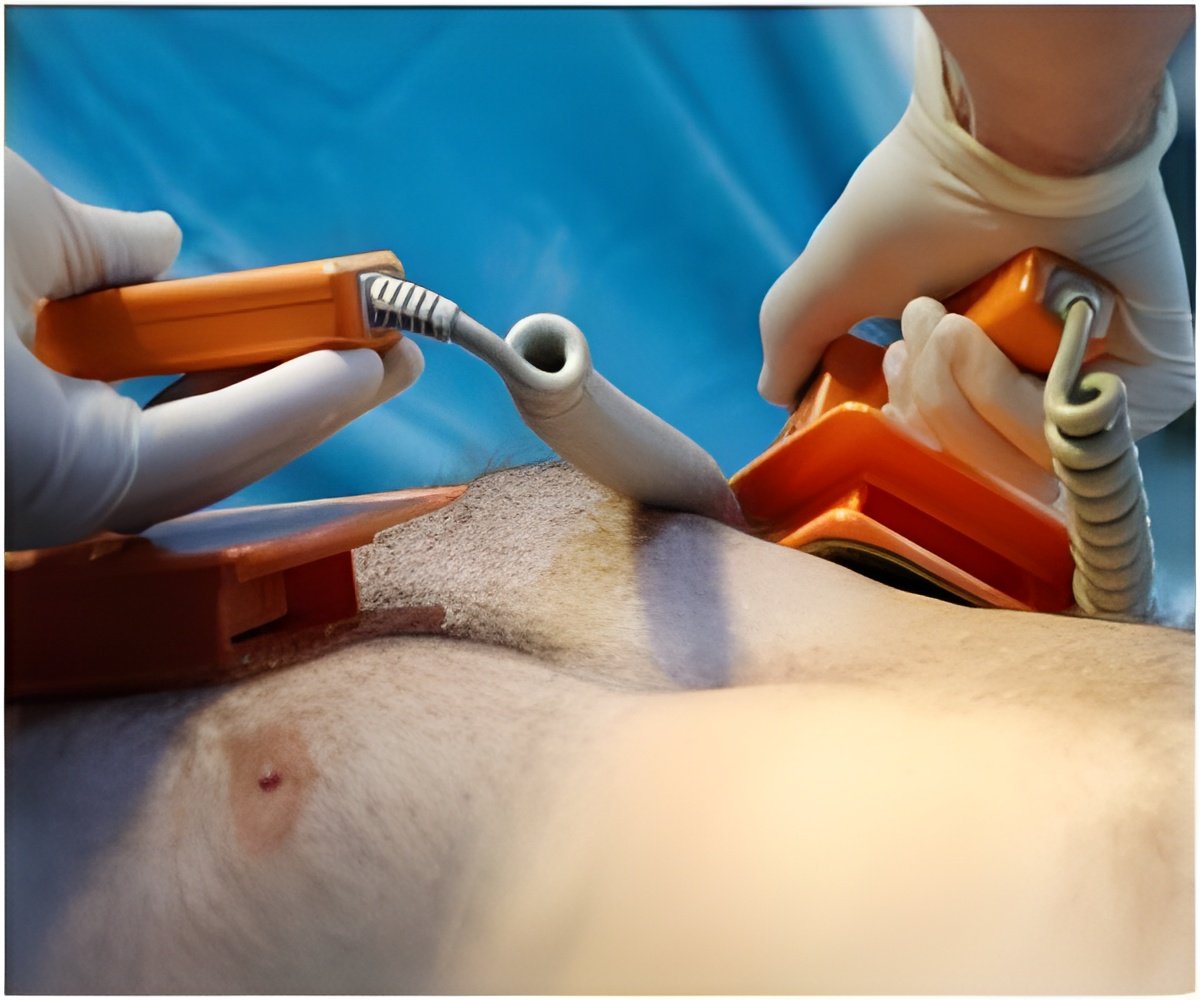A new performance intervention to help improve adherence to national guideline-recommended therapies for heart failure patients in an outpatient setting was tested

Although several programs have helped improve heart failure patient care in the hospital, this is the largest performance improvement intervention on the use of national guideline-recommended therapies in an outpatient clinic setting.
Reported in the July 26 online edition of Circulation, the new program provided key interventions including clinical decision support tools, structured improvement strategies, and medical chart audits with feedback to help clinicians better provide heart failure therapies that have been proven to improve patient survival and other clinical outcomes.
"We found substantial, clinically relevant improvement in the number of heart failure patients receiving key treatments after introducing this new performance improvement intervention program at the participating cardiology practices," said first author Dr. Gregg Fonarow, Eliot Corday Professor of Cardiovascular Medicine and Science and director, Ahmanson-UCLA Cardiomyopathy Center, David Geffen School of Medicine at UCLA.
For the study, researchers utilized a new program called the Registry to Improve the Use of Evidence-Based Heart Failure Therapies in the Outpatient Setting (IMPROVE HF) at 167 cardiology practice clinics in the United States. Participants included 34,810 patients diagnosed with a previous heart attack, weakening left heart ventricle function, or chronic heart failure, which is a condition occurring when the heart's left ventricle can no longer pump enough blood to the body's other organs.
The program applied interventions to help ensure that heart failure patients received seven national standard of care level treatments as recommended in heart failure guidelines developed by the American College of Cardiology and the American Heart Association.
Advertisement
Medical chart reviews performed at baseline before adopting the program and at several points in time up to two years after initiation of the IMPROVE HF program revealed significant improvement in use of five of the seven evidence-based, national guideline-recommended heart failure treatments targeted in the study. Researchers found:
Advertisement
- Beta blocker medication use increased 6.2 percent, up from 86 percent at baseline to 92.2 percent after the interventions.
- Aldosterone antagonist medication use rose 25.1 percent, increasing from 34. 5 to 60.3 percent.
- Cardiac resynchronization therapy, a device to help coordinate the heart's contractions, had a reported increased use of 29.9 percent, up from 37.2 percent at baseline to 66.3 percent.
- Use of implantable cardioverter-defibrillator devices, which help regularly pace abnormal heartbeats, increased 27.4 percent, from 50.1 to 77.5 percent.
- Heart failure patient education also rose 12.6 percent, from 59.5 to 72.1 percent.
He noted that overall, opportunities to provide national guideline-recommended therapies to eligible patients increased from 68. 4 percent at baseline to 80.1 percent at two years after initiating IMPROVE HF interventions.
According to researchers, this increase is significant, especially given the wide range of cardiology practices across the country included in the study, the majority of which were community based.
"The IMPROVE HF program may help establish a model and framework for future performance-improvement programs administered in an outpatient setting for cardiology practices," added Fonarow.
The demonstration of substantial change in the use of guideline-recommended therapies among practices participating in IMPROVE HF provides direct evidence in support of applying this or programs of similar design nationwide.
Fonarow further noted, "This study suggests that receipt of patient-level performance feedback that is actionable appears to be a particularly important component of heart failure performance improvement efforts. Because IMPROVE HF, with the exception of the practice-specific data collection, utilized existing personnel and resources within each practice, it may be more scalable and sustainable than alternative models to improve outpatient cardiovascular care."
No significant improvements were seen for two of the national guideline treatments used in the study: heart failure medication called angiotensin-converting enzyme inhibitor/angiotensin receptor blocker or use of an anticoagulation medication for atrial fibrillation.
Researchers suggest that this could be due to physician perceptions, inconvenience associated with monitoring certain drugs or other factors. Further study is needed to explore why usage of these two treatments did not improve.
Source-Eurekalert















